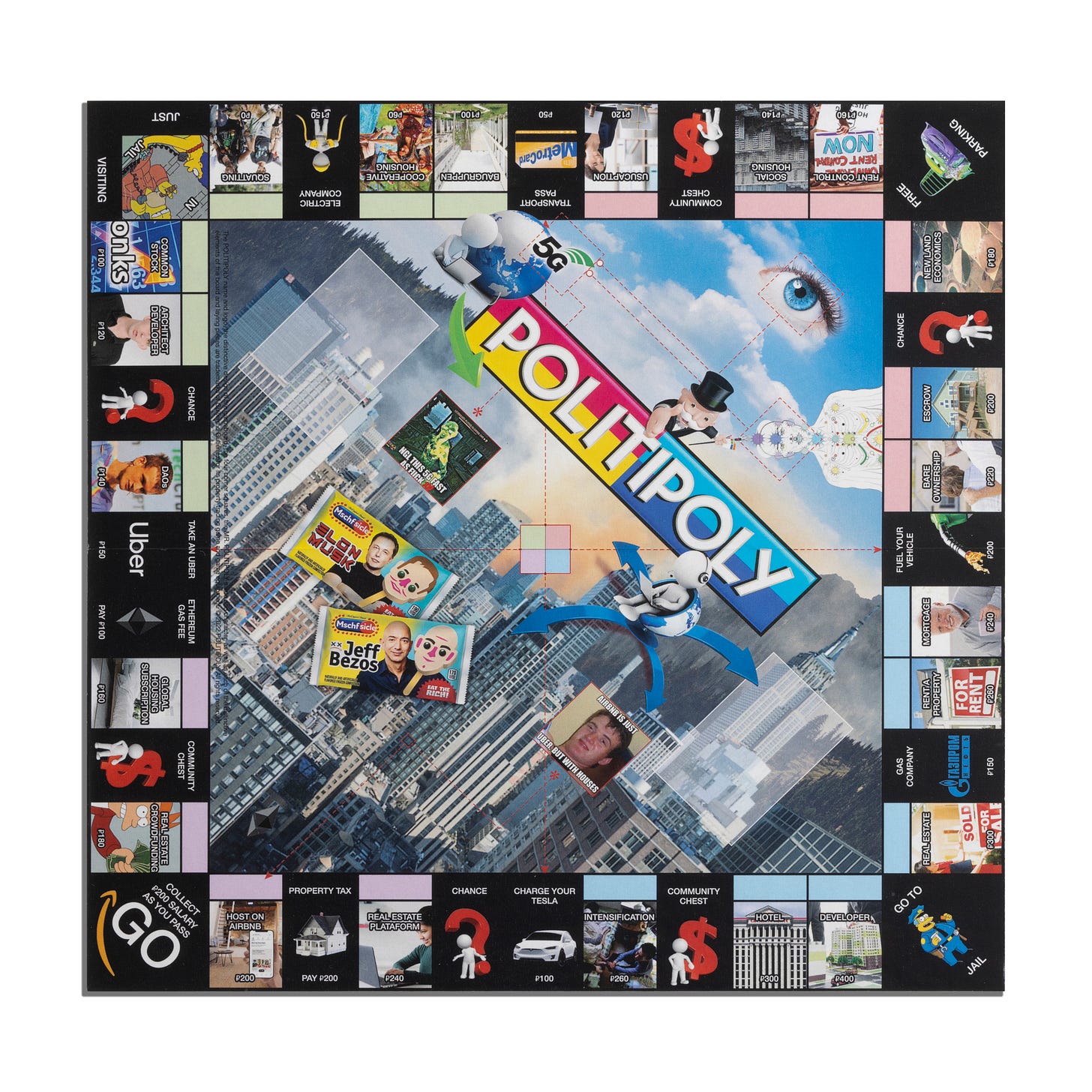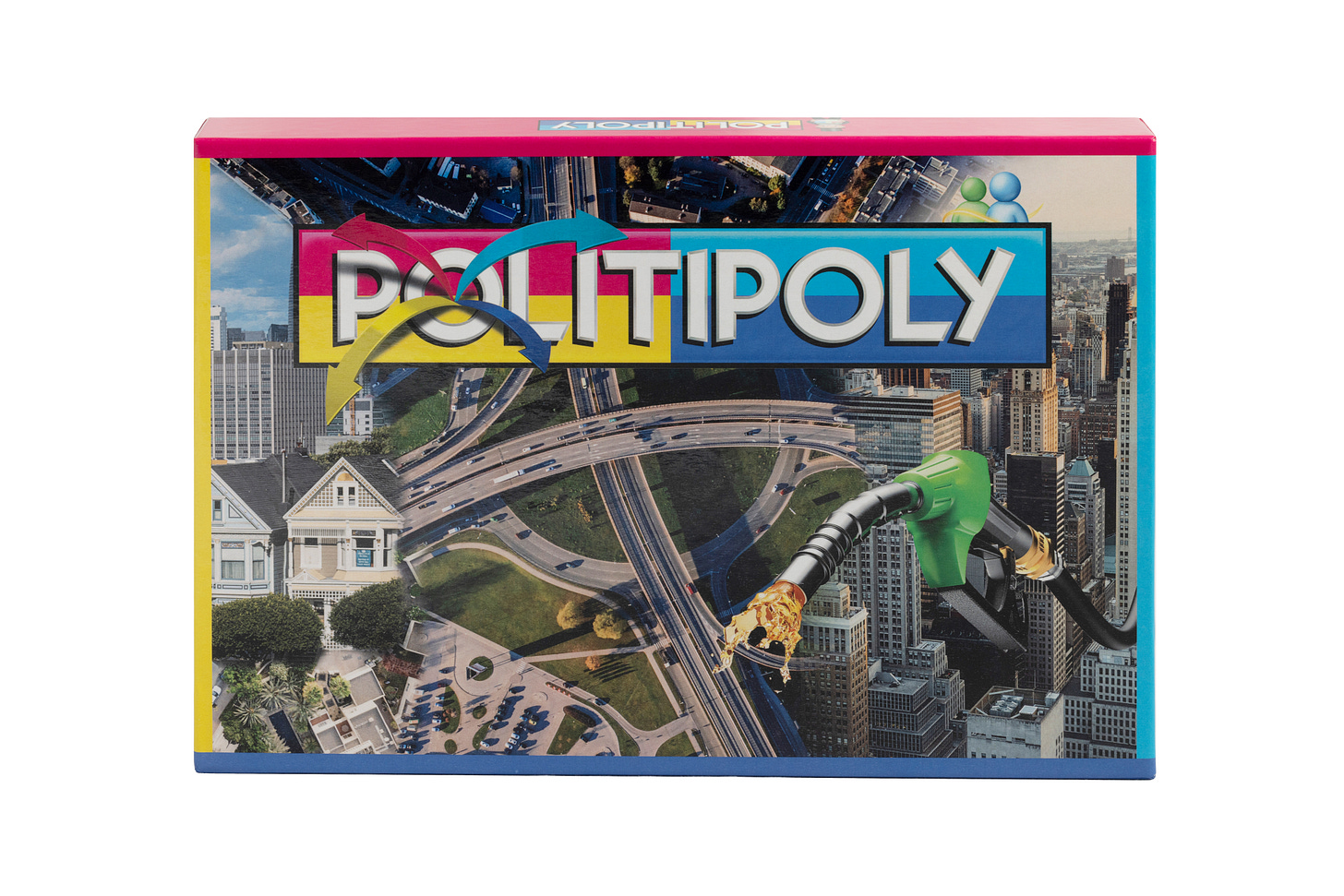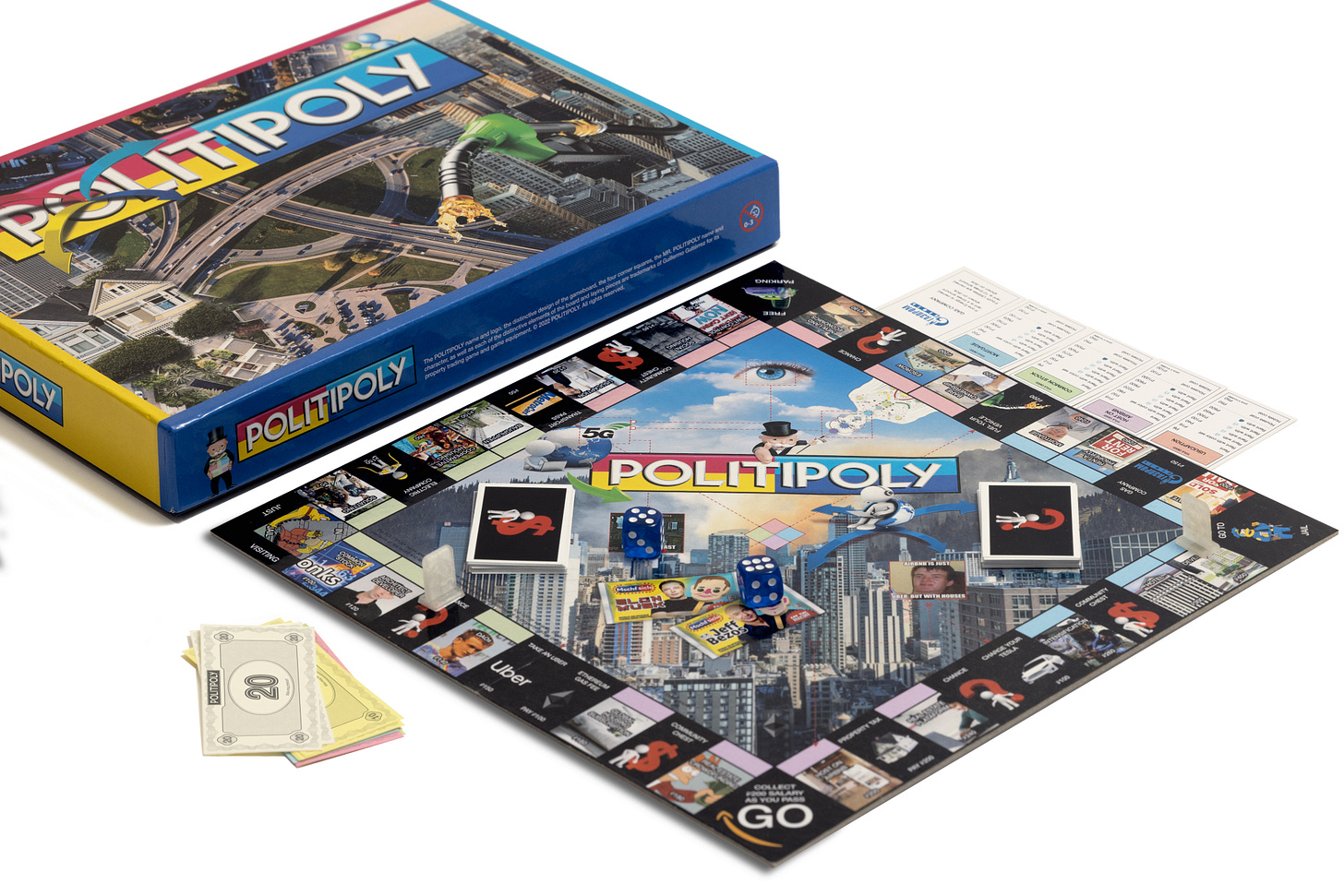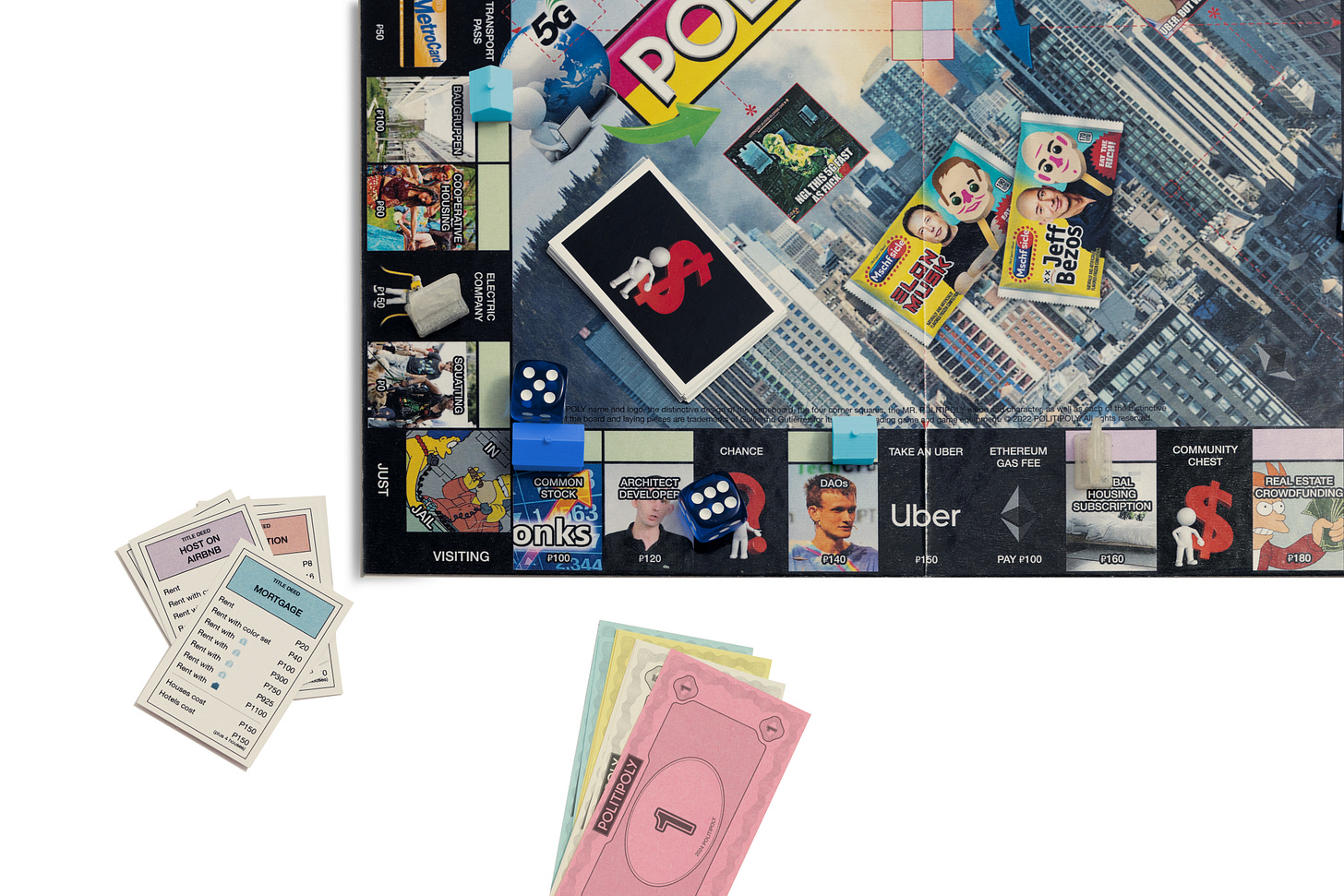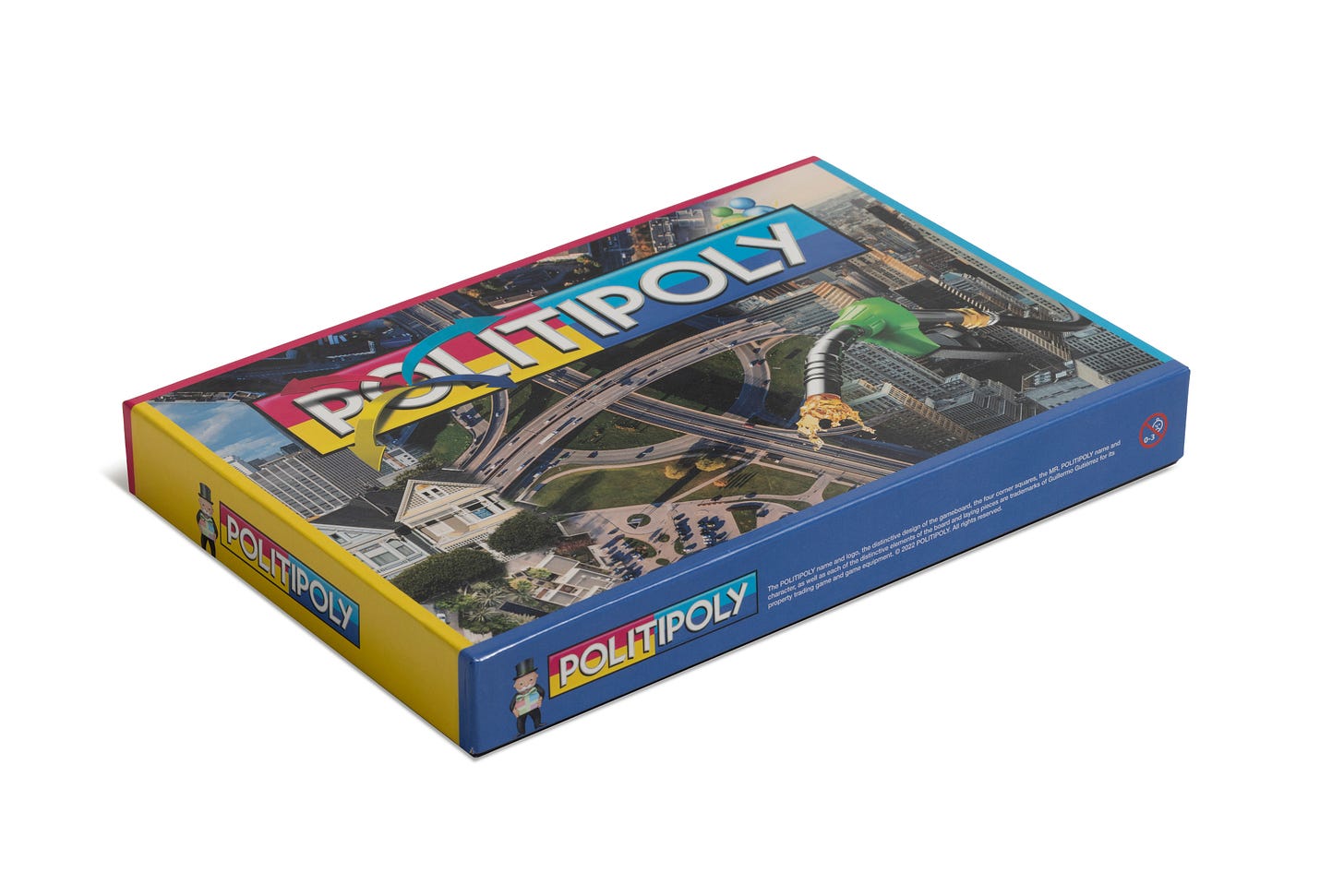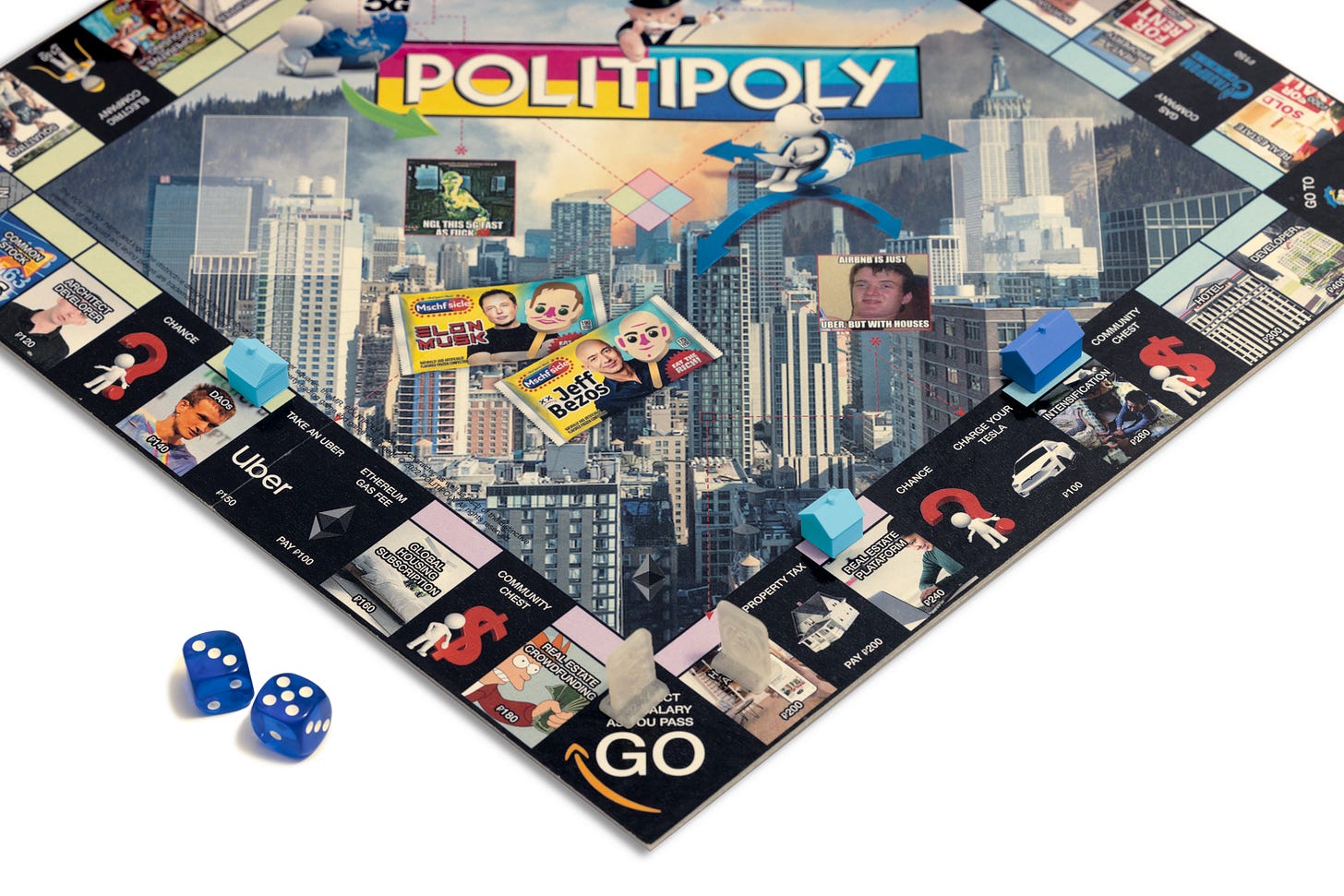Politipoly is a version of a famous real estate board game by artist Guillermo Gutiérrez Arribas. A signed, limited edition of 10 are now available.
Guillermo Gutiérrez Arribas is an artist based in Madrid, Spain.
The aesthetics and organization of the board uses the current language of the internet, mainly that of memes. This game board is organized according to the political compass, a diagram widely used in the world of memes that has two axes: economic (left–right) and social (authoritarian–libertarian). According to this diagram, we organize the board by placing different real estate models in accordance with their position in the political spectrum. The future compass is also a feature in this board, a two-dimensional meme chart that depicts various futuristic scenarios. It is organized on two axes: hyperhuman-unhuman and acceleration-deceleration. The board becomes a mix between the political and the future compasses.
A limited edition of 10 are now available on Metalabel.
This idea was inspired by the lack of access to affordable housing that young people have been facing for years. The two best-known models for housing are the mortgage and the rental, both linked to debt due to the increasing prices in the housing market which has been exponentially growing since 1970. While the income of average families has hardly changed, this rise has led subsequent generations to encounter growing inequality.
Politipoly is now available on Metalabel.
The gameboard demonstrates twenty-two current or future real estate trends explained below:
01. Real Estate Crowdfunding: It uses social media and the internet to connect investors to property investments. It is similar to equity investing since an investor can buy into a property and become a shareholder. Crowdfunding offers companies the access to capital that otherwise they may never be able to raise.
02. Global Housing Subscription: A distributed housing system all over the world where you share a portfolio of houses with other subscribers and you are able to choose where you live. E.g.: Earth, a project by Christopher Kulendran Thomas.
03. DAOs: The use of smart contract technology to build fair and transparent communities. E.g.: Doma City, a project by Maksym Rokmaniko, Francesco Sebregondi, Enrico Zago and Melissa Frost.
04. Architect Developer: They work with investors or by themselves and are more involved in the whole construction process. Their intention is to lower the costs in order to be able to offer homes at more affordable prices. E.g.: Jack Self, architect based in London.
05. Common Stock: Sharing among the neighbors the objects that have low temporary use in order to reduce expenses and be able to reinvest them in improvement projects for the community. E.g.: Common Stock: Sharing as Luxury a project by Jack Self.
06. Squatting: The unlawful occupation of an uninhabited building.
07. Cooperative Housing: The property is owned by an organization and then sold as shares to the residents of the community. E.g.: La Borda in Barcelona.
08. Baugruppen: A model widely used throughout Germany where people come together to finance, buy, design, and construct the buildings they will ultimately live in. They are the developers and the advantages over traditional development are many. In addition to the obvious and significant savings, units can be designed around the individual needs of every owner.
09. Usucaption: Ownership of property which can be gained by possession of it after a certain period of time.
10. Social Housing: Housing provided by the government to people with low income or with particular needs.
11. Rent Control: A governmental program that places a limit on the amount that a landlord can demand for leasing a home or increasing the renewal of a lease.
12. New Land Economics: New models of property politics such as those proposed by the 19th century economist Henry George.
13. Escrow: Legal arrangement in which a third party temporarily holds property until a particular condition has been met.
14. Bare Ownership: A loan that you can borrow against the value of your home and receive funds as a lump sum or fixed monthly payment.
15. Mortgage: The legal agreement by which a bank lends money with an interest rate in exchange for taking title of the debtor's property, on the condition that the conveyance of the title becomes void upon the payment of the debt.
16. Property Rental: You regularly receive a fixed amount of money for the use of your property or properties by tenants.
17. Real Estate: The business of buying and selling of land and buildings.
18. Developer: A person who buys and develops buildings in order to sell them and make profit from them.
19. Hotel: An establishment that provides lodging and various personal services to travelers and tourists.
20. Intensification: The development of an existing building, site, or area which allows a density higher than what currently exists.
21. Real Estate Platform: An online real estate system of buying or selling properties by a web platform. E.g.: compass.com
22. Host on Airbnb: Owners renting out their homes to travelers looking for a place to stay, usually on holidays.
Politipoly, 2025




